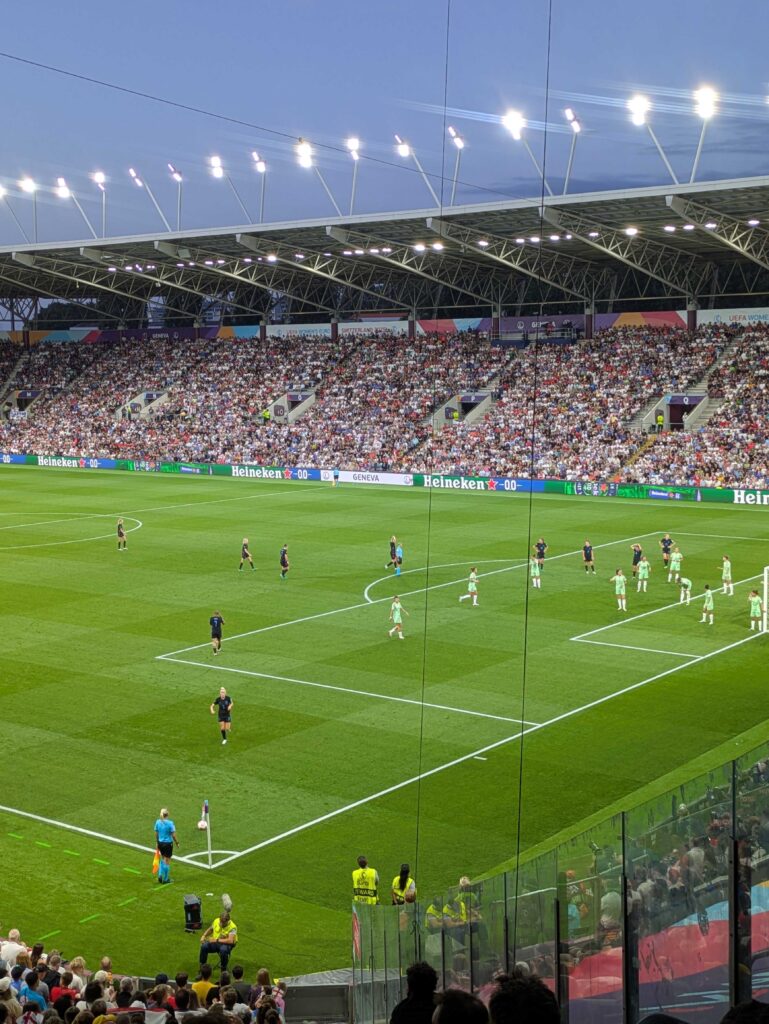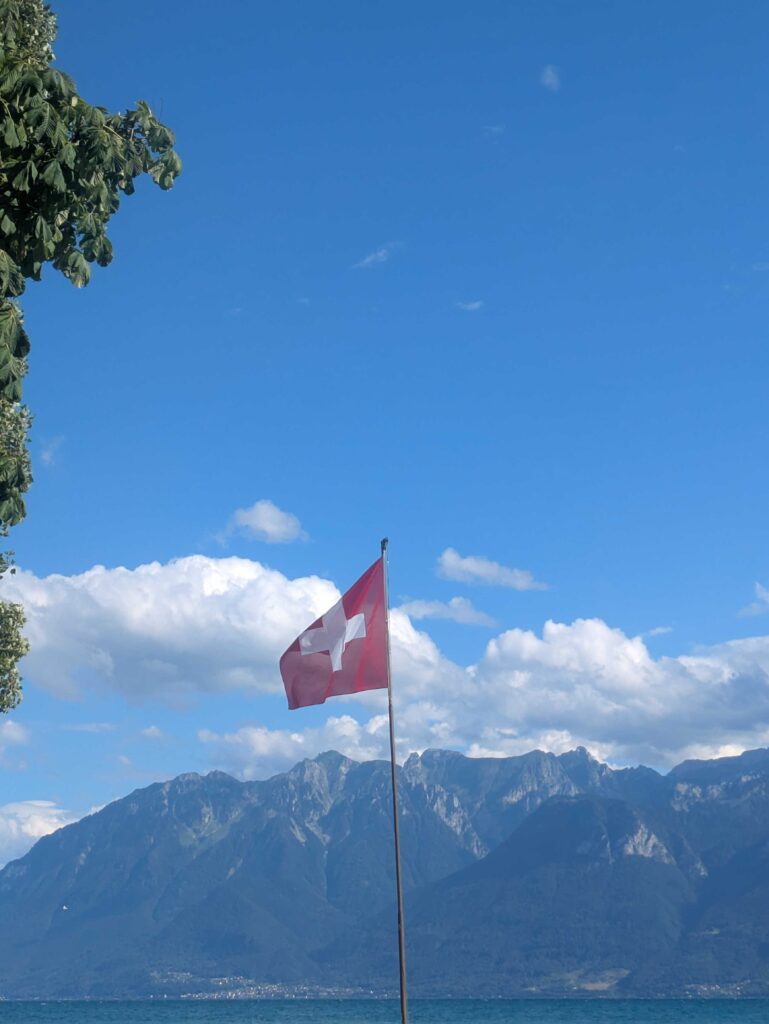This summer I got to combine two of my favourite hobbies: women’s football and train travel. Getting tickets to the semi-finals of the Euros in Geneva wasn’t the easiest, but deciding to go by train definitely was! I’d save 99.8% emissions compared to flying and get to experience the gorgeous Swiss landscape pass me by from the train window.
Travelling from Berlin to Geneva, I chose a slow-travel route with an overnight stop in Basel. After a good work day on the train – I always do my most creative work on trains! – I could explore the city of Basel in the evening. The next day, a short ride along Lake Geneva gave me exactly the Swiss views I was hoping for.
Travelling by train to the Euros allowed me to keep my love for women’s football as sustainable as possible. Planes are the most carbon-intensive mode of transport and as someone who works on the decarbonisation of the sector, I am all too aware of how far away real green solutions are. A shift from planes to trains where possible is key in ensuring our planet remains a place where we can play and enjoy football.



Players aren’t immune to the effects of our changing climate. In a report by Planet League 65% of female players said that climate change is affecting football both on and off the pitch. Over 70% have experienced changes in playing conditions during their careers. If increasing temperatures and more unpredictable weather is already affecting players and affects fans too, we need to do everything we can to ensure that the future of the game isn’t compromised.
Stars of the women’s game have started to speak up themselves. In 2024, over 130 professional female players from 27 countries wrote a joint letter to Gianni Infantino, President of FIFA, to call for an end to its sponsorship agreement with the oil giant Saudi Aramco. They call the sponsorship deal “a middle finger to women’s football”, due to the oil major’s role in fuelling the climate crisis and Saudi Arabia’s track record of human rights violations. Signatories include my personal football hero, star striker of the Dutch team Vivianne Miedema, highlighting that it is possible for high profile players to make a strong public statement in times of climate crisis.
While 6 teams did commit not to fly within Switzerland during the Euros, there is much more that can be done from both the fan and the player side. With the increasing profile of the women’s game, it has the power to lead the way to a fossil-free future – for the future of football and the planet.
Marte van der Graaf, German Aviation Officer at T&E